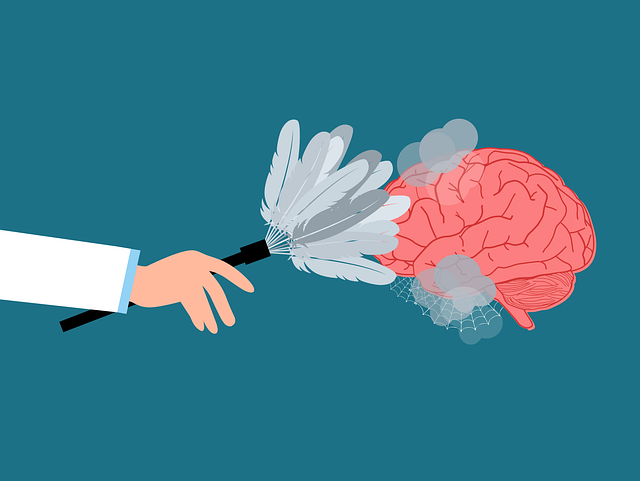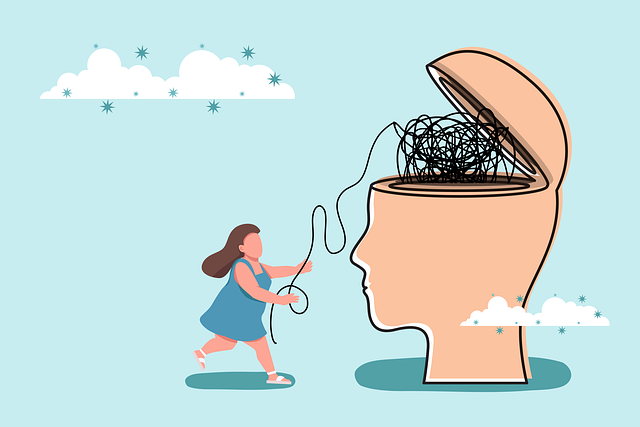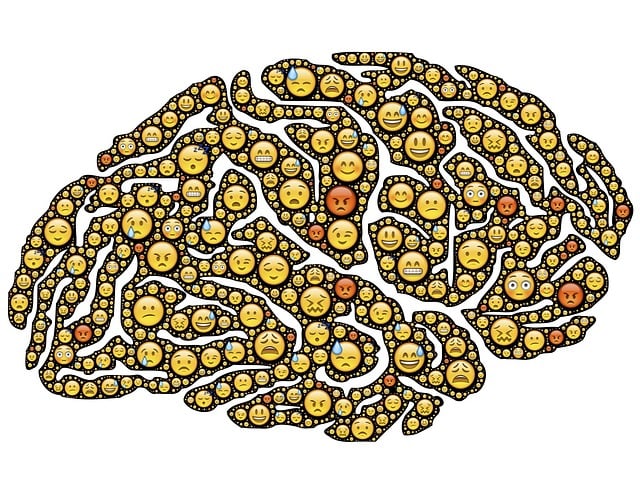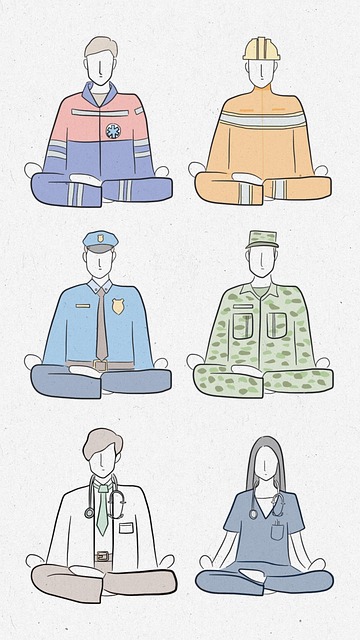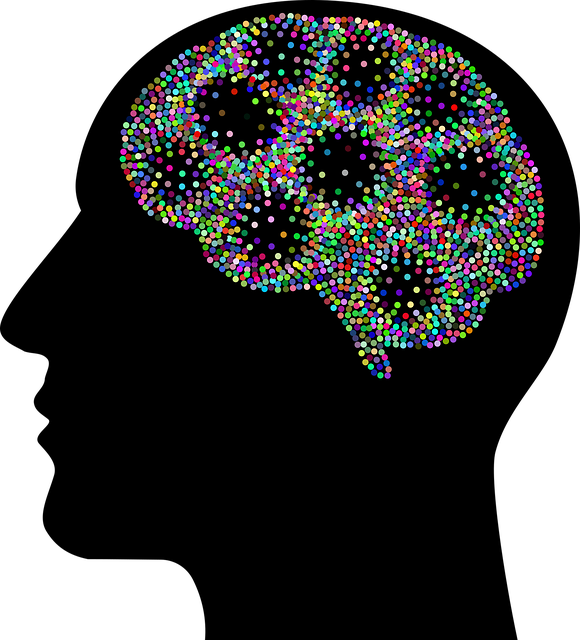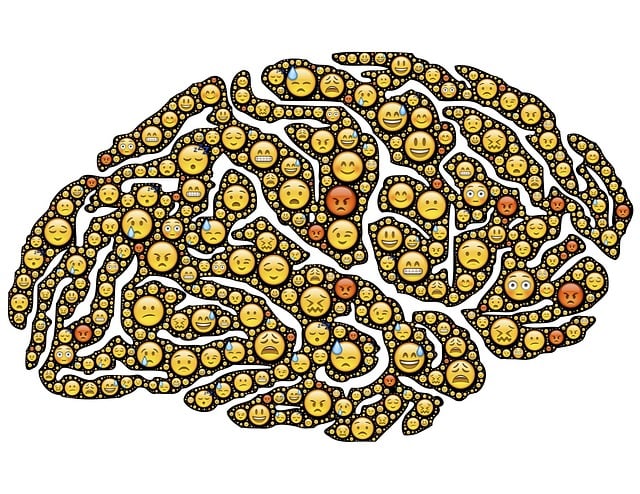The stigma surrounding mental illness significantly impacts young adults' well-being, especially during major life transitions like leaving home for college or entering the workforce, exacerbating anxiety and depression. To combat this, individual strategies like compassion cultivation and stress reduction methods are crucial. Communities can create safer spaces for mental health discussions through education campaigns and media initiatives, destigmatizing mental health challenges and encouraging early intervention. Peer-to-peer connections in therapy settings offer support and understanding, improving mood management and overall well-being. Governments play a vital role by funding tailored therapy options and integrating mental health programs into educational institutions and community centers, leading to better long-term outcomes for young adults navigating life challenges.
Mental illness stigma remains a significant barrier to young adults seeking help. This article delves into crucial strategies for reducing this pervasive issue, exploring its profound impact on mental health and well-being. We examine therapy’s role in addressing stigma during major life transitions, the power of education and awareness campaigns, peer support networks, and policy changes aimed at improving access to care. By understanding these interconnected efforts, we can foster a more supportive environment for young adults facing mental health challenges. Specifically, we focus on tailored interventions like therapy for young adults navigating significant life changes.
- Understanding Stigma and its Impact on Mental Health for Young Adults
- The Role of Therapy in Addressing Stigma During Major Life Transitions
- Education and Awareness Campaigns: Shifting Public Perception
- Supporting Peer-to-Peer Connections to Reduce Stigma
- Policy Changes and Access to Care: A Holistic Approach to Stigma Reduction
Understanding Stigma and its Impact on Mental Health for Young Adults

Stigma surrounding mental illness can have a profound impact on young adults’ well-being and their willingness to seek help. This societal misconception often presents as shame, leading many to internalize negative beliefs about their conditions. Such experiences can be especially detrimental during major life transitions like leaving home for college or entering the workforce. In these vulnerable periods, young minds are already navigating new challenges, identity formation, and increased independence, making them susceptible to heightened anxiety, depression, or other mental health concerns.
Understanding stigma’s role in mental health is crucial. It often prevents young adults from discussing their feelings openly or considering therapy for young adults as a valid solution. Compassion cultivation practices, stress reduction methods, and empathy-building strategies are proven tools that can combat stigma at an individual level. By fostering understanding and supporting one another, communities can create a safer space for mental health discussions, ensuring young adults receive the necessary support during these critical life stages.
The Role of Therapy in Addressing Stigma During Major Life Transitions

Therapy plays a pivotal role in addressing stigma during major life transitions for young adults. Many individuals experiencing depression or anxiety for the first time often turn to therapy as a crucial step in their mental health journey. This period of transition, whether it be starting college, entering the workforce, or navigating a significant life change, can exacerbate existing mental health concerns and trigger new ones. Therapy provides a safe space where young adults can process these challenges, learn effective coping strategies, and develop resilience.
Through evidence-based practices, therapists equip clients with depression prevention methods and stress reduction techniques tailored to their unique experiences. By fostering open dialogue and challenging societal norms, therapy helps dispel myths surrounding mental illness. This is particularly important during formative years when identity and self-perception are being shaped. Additionally, Mental Health Policy Analysis and Advocacy can be integrated into therapeutic frameworks to educate clients on their rights, promote understanding of mental health conditions, and encourage support systems at both individual and societal levels.
Education and Awareness Campaigns: Shifting Public Perception

Education and Awareness Campaigns play a pivotal role in shifting public perception about mental illness, particularly for young adults navigating major life transitions. By integrating Compassion Cultivation Practices into school curricula and community outreach programs, we can foster a more empathetic society. These initiatives aim to demystify mental health challenges and reduce the stigma associated with seeking therapy, encouraging early intervention and improved outcomes.
Through engaging Mental Wellness Podcast Series Production, targeted at diverse audiences, we can share personal stories, dispel myths, and offer practical tips for managing anxiety and other common issues. Such platforms provide a safe space to discuss mental health openly, normalizing conversations about therapy for young adults and promoting holistic well-being. This multi-faceted approach leverages the power of education and media to cultivate a culture of care and support.
Supporting Peer-to-Peer Connections to Reduce Stigma

Stigma surrounding mental illness can be deeply damaging, especially for young adults navigating major life transitions. Peer-to-peer connections offer a powerful tool to combat this stigma. By fostering relationships with peers who have experienced similar challenges, individuals can find support, understanding, and a sense of belonging. This network provides a safe space to share experiences, discuss coping strategies, and learn from one another’s journeys.
Encouraging these connections in therapy settings for young adults can facilitate the development of crucial coping skills. Through peer support, individuals gain valuable insights into managing their moods, practicing stress reduction methods, and discovering effective ways to cope with life’s transitions. This collective experience fosters empathy, breaks down barriers, and promotes a more inclusive environment, ultimately contributing to reduced stigma and enhanced mental well-being.
Policy Changes and Access to Care: A Holistic Approach to Stigma Reduction

Mental health policies and improved access to care play a pivotal role in stigma reduction efforts, offering a holistic approach to challenging societal perceptions. By implementing reforms that prioritize mental well-being, governments can ensure young adults receive the necessary support during major life transitions. This includes increasing funding for accessible therapy options tailored to this demographic’s unique needs, such as anxiety and depression treatment designed for younger patients.
A comprehensive strategy may involve integrating conflict resolution techniques and mood management programs into educational institutions and community centers. Encouraging open conversations about mental health and implementing self-esteem improvement initiatives can further dispel myths surrounding mental illness. This holistic approach aims to foster an environment where individuals feel empowered to seek help without fear of stigma, ensuring better long-term outcomes for young adults navigating life’s challenges.
Mental illness stigma reduction is a multifaceted approach that involves understanding its profound impact on young adults during significant life transitions. By integrating therapy tailored for this demographic, combined with education campaigns, peer support networks, and policy reforms to improve access to care, we can create a more inclusive society where mental health is treated with the same compassion as physical health. These efforts collectively empower individuals to seek help without fear of judgment, fostering better outcomes for young adults navigating their mental well-being.
